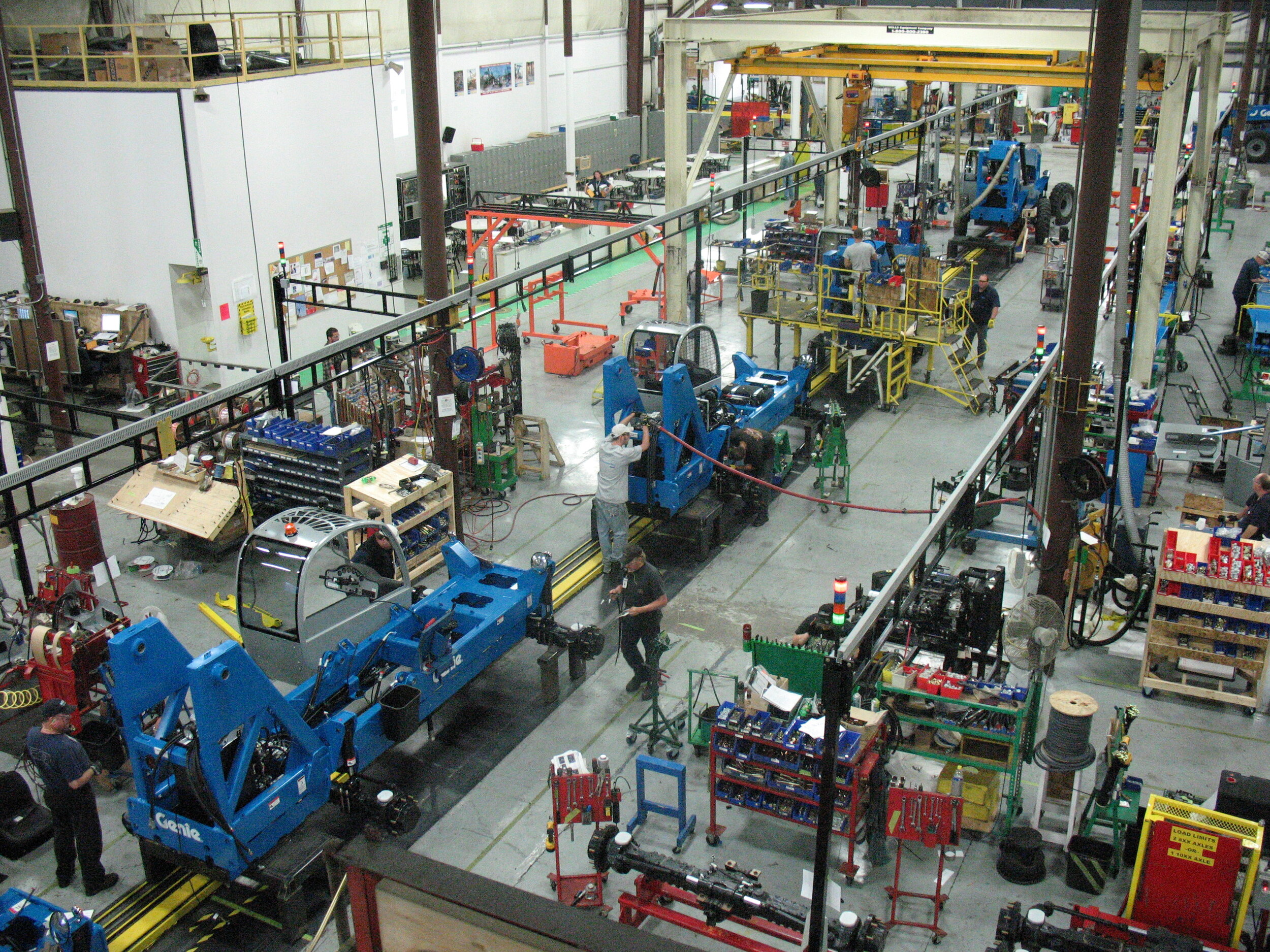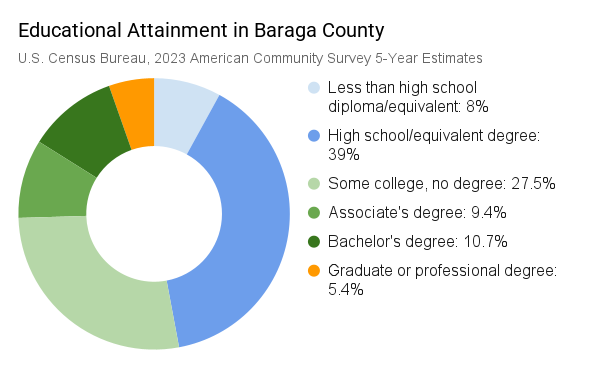
Baraga County
Baraga County surrounds the scenic shores of the Keweenaw and Huron Bays—two rugged, picturesque inlets of Lake Superior that offer outstanding opportunities for recreation. At the southern end of Keweenaw Bay lie the pleasant villages of L’Anse and Baraga with the Keweenaw Bay Indian Community and the L’Anse Indian Reservation. The south and east ends of the county are made up of large expanses of forestland, which contain the Sturgeon River Gorge Wilderness; and Mount Arvon, the highest point in Michigan.
Three major highways cross the county, meaning that travelers coming from the south or east toward the Keweenaw Peninsula will universally pass through Baraga County. Whether you're passing through or planning a stay, Baraga County holds abundant reasons to stop and explore along any route!
People
-
Population: 8,169
Population percent change from 2020 – 2024: 0.2%
Median household income: $55,117
Per capita income: $28,904
Asset Limited, Income Constrained, Employed (ALICE) households earn more than the Federal Poverty Level, but not enough to afford the basics where they live.
Of the 3,337 households in Baraga County in 2023…
16% earned below the Federal Poverty Level (FPL).
33% were ALICE, households that earned above the FPL, but not enough to afford basic needs or save for the future.
Together, 49% of households in Baraga County were below the ALICE Threshold (poverty + ALICE divided by total households).
Economy
-
Employed persons (U.S. Bureau of Labor Statistics, April 2025): 3,121
Unemployment rate (U.S. Bureau of Labor Statistics, April 2025): 8.6%
Top five industries by number of workers 16 & over:
Healthcare, social assistance, and educational services: 22.62%
Accommodation, food services, arts, entertainment, and recreation: 11.8%
Public administration: 11.6%
Retail trade: 10.8%
Manufacturing: 10.67%
Learn about Baraga County’s Economic Development Capacity Index (EDCI) here
Housing
-
Total housing units (2024): 5,907
Households: 3,337
Average persons per household: 2.16
Housing age:
19.3% built in 1939 or earlier
Median year of structures built: 1972
Median owner-occupied house value: $124,400
Median gross rent 2019-2023: $557
Homeownership rate: 77%
Statistical data are from 2019-2023 American Community Survey five-year estimates. Other sources are in italics.
Health
-
Persons without health insurance: 6.6%
Persons living with a disability under age 65: 14.8%
Persons unable to access healthcare due to cost (Western UP District Health Department): 14.2%
Persons receiving 5+ daily servings of fruits and vegetables (Western UP District Health Department): 6.9%
Food insecurity rate in Baraga County (Feeding America): 16.6%
Population living 10 or more miles away from the nearest grocery store (Western UP Food Systems Collaborative, 2022): 43.3%
Access the WUPDHD Community Health Needs Assessment for the county here
Access the WUPFSC Community Food Survey Results for the county here
Education
-
Total K-12 enrollment in 2024-2025: 1,103
Children ages 5–17 enrolled in school: 97.3%
Households with a computer: 88.2%
Households with a broadband Internet subscription: 81.5%
Educational institutions (NCES):
K-8 schools: 1
K-12 schools: 2
Keweenaw Bay Ojibwe Community College




